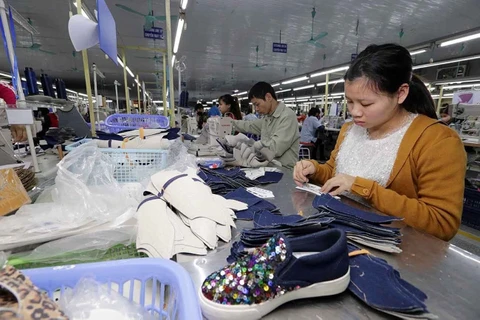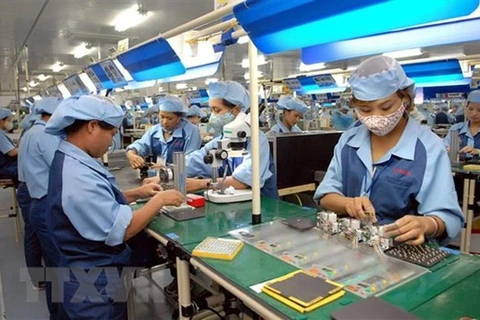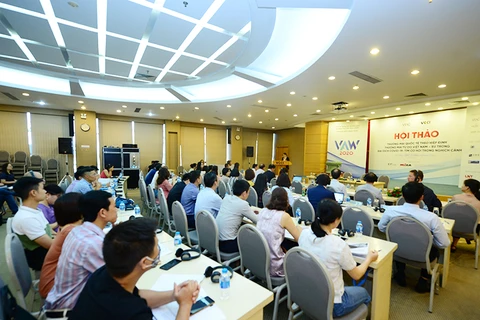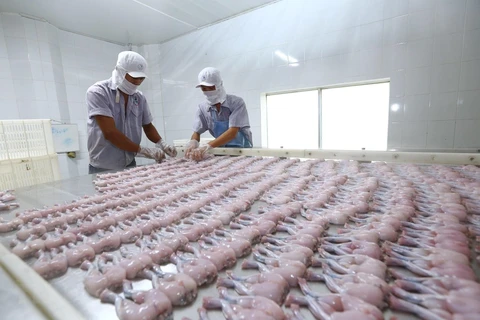Hanoi (VNS/VNA) - The opening of the domestic market as committed in the EU – Vietnam Free Trade Agreement (EVFTA) will lead to the strong penetration of foreign businesses to expand their retail chains in the country.
This poses great challenges, requiring state management agencies to make appropriate and timely decisions to support retail businesses in the new context.
Dinh Thi My Loan, vice president and general secretary of the Association of Vietnam Retailers (AVR), said that this was an opportunity to increase the circulation of domestic goods through expanding the business size and network of foreign retailers.
The size of the domestic market had plenty of room for growth, which was a space for Vietnamese retail businesses to expand their market share, she said.
The opening of the market would give Vietnamese retailers opportunities to access large investment capital, as well as advanced management technology in trade activities from EU countries.
Commercial infrastructure would be modernised, helping domestic businesses and consumers access the supply of high-quality products and services, said Loan.
However, the EVFTA also has negative effects, creating great challenges for domestic distribution businesses, especially small and medium-sized enterprises.
The Ha Noi Moi (New Hanoi) newspaper quoted Nguyen Thi Kim Dung, director of Co.opmart Ha Dong supermarket, as saying that many businesses with small capital and low management qualifications would face difficulties.
In addition, businesses in the retail sector were also challenged to adapt to the rapid development of information technology and the digital economy, said Dung.
The transformation and digitalisation of information systems related to business and customer management were important issues, but they were still a huge obstacle for domestic retailers.
Tran Duy Dong, director of the Ministry of Industry and Trade's Domestic Market Department, emphasised that in order to make full use of the EVFTA, state management agencies needed to implement a number of solutions.
In particular, it was necessary to focus on studying the EVFTA's commitments to implement them effectively, and strengthen policies to support small and medium enterprises, said the director.
Besides, it was necessary to remove difficulties in logistics to support trade development, promote reforms and simplify administrative procedures, and create linkages between ministries and sectors to improve the competitiveness of the business environment, he added.
On the other hand, he also said it was necessary to complete policies to attract foreign investment, develop measures to protect domestic enterprises by setting up technical barriers and strictly controlling the activities of foreign enterprises.
In addition to the above solutions, to minimise the negative impacts, small and medium-sized enterprises in the country need to strengthen links and cooperation with domestic and foreign partners to take advantage of technology, management and markets to participate in the value chain, cooperate with manufacturers and participate in domestic, regional and global production networks and supply chains./.
VNA
























